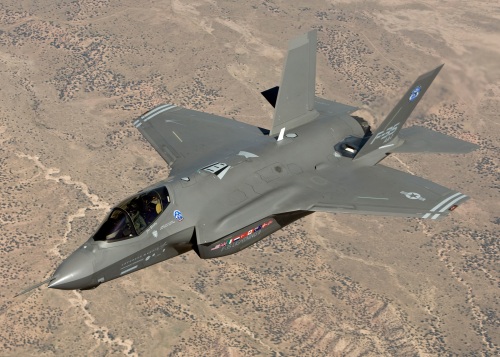According to the Washington Post, designs for many of the U.S.’s most sensitive advanced weapons systems have been hacked by Chinese cyberspies.

A report obtained by the Washington Post indicated the Chinese have stolen dozens of design plans from the U.S. Military.
An official report on the matter was put together for the Pentagon and sent out to officials from the government and defense industries. The Post was able to review a copy of the report, which indicates there were more than two dozen major weapons systems designs breached, including those for PAC-3, an advanced Patriot missile systems, an Army anti-missile system referred to as Thaad, and the Navy's Aegis ballistic-missile defense system.
Also compromised, design plans for the F/A-18 fighter jet, the Navy's new Littoral Combat Ship, and the F-35 Joint Strike Fighter, the most expensive weapons system ever built (it’s on track to cost nearly $1.4 trillion).

The F-35 Joint Strike Fighter is far and above the most expensive weapons system ever.
The hack is a three-fold problem for the U.S.:
• Access to advanced U.S. designs gives China an immediate operational edge that could be used to the country’s advantage should the two nations ever engage in conflict.
• Being able to study the designs will accelerate China’s acquisition of advanced military technology and saves billions in R&D.
• Perhaps most obvious, the designs can be used to benefit China’s own defense industry.
The report comes on the heels of Australia having also publicly accused Chinese hackers for stealing floor plans for the new headquarters of the country’s domestic intelligence agency.
Addressing the story, U.S. defense department spokesman George Little said that the Pentagon maintained “full confidence in our weapons platforms.”
“The Department of Defense takes the threat of cyber espionage and cyber security very seriously, which is why we have taken a number of steps to increase funding to strengthen our capabilities,” he said.
“Suggestions that cyber intrusions have somehow led to the erosion of our capabilities or technological edge are incorrect.”
The Chinese government, meanwhile, insists it does not conduct cyber-espionage. Regardless of whether or not this is true, President Obama is expected to address the issue next month when he meets with Chinese President Xi Jinping.
Story via: washingtonpost.com
Advertisement
Learn more about Electronic Products Magazine





